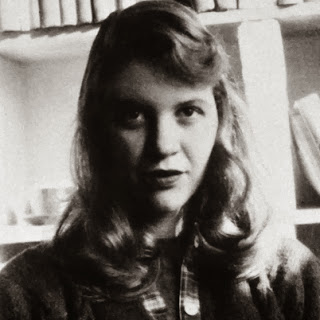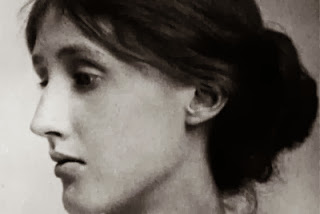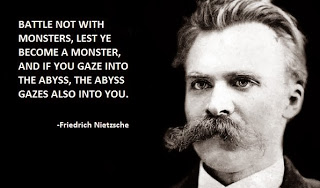Elizabeth Black lives on the Massachusetts coast with her husband, son, and four cats. You may find her on Facebook and on her web site.
It came as no
surprise to me that writing is one of the top 10 professions in which people are
mostly likely to suffer from depression. According to a new Swedish study, “writers
have a higher risk than the general population of anxiety and bipolar
disorders, schizophrenia, unipolar depression, and substance abuse. They were
also about twice as likely to commit suicide.”
A second recent study
from Austria found a tie between creativity and mental disorders. According to
this study, “creative professionals are a bit more likely than others to
suffer from bipolar disorder. The healthy relatives of schizophrenics tend to
enter creative fields. A genetic variant of some psychoses may be related to
creative achievement. Some dimensions of schizotypy–personality traits that
may make a person more vulnerable to schizophrenia–predict a person’s
creativity.”
I’ve suffered from
bi-polar disorder since I was a child, but I wasn’t diagnosed until my mid-20s.
I’m currently on medication that keeps the mood swings in check but I know the
moment I go off them I’ll dive into the pit of Hell and soar to uncomfortable heights
again, and neither is a pleasant experience. During these highs and lows, I
wrote and continue to write. I’ve also painted, drawn, and composed music, but
mostly, I put fingers to keyboard.
The tie between art
and mental illness is not something to be taken lightly. It’s not merely a
matter of having “the blues” and needing to pick yourself up by the
bootstraps and get on with your life. Depression and other forms of mental
illness can very devastating —and deadly.
Creativity and
madness go hand-in-hand. Hemingway committed suicide with a bullet to the head.
He’s not the first writer to suffer from mental illness. Virginia Woolf drowned
herself. Sylvia Plath stuck her head in her oven, but only after giving the
kids milk and cookies as a snack. Her colleague and friend Anne Sexton also
committed suicide. Zelda Fitzgerald was diagnosed with schizophrenia, and she
spent the last years of her life in an asylum. F. Scott Fitzgerald suffered
from depression and alcoholism. Hunter S. Thompson shot himself. Susanna Kaysen
stayed in a mental hospital and later wrote “Girl, Interrupted”.
Hermanne Hesse, who may have been bi-polar, attempted suicide and spent time in
several mental institutions. Another possible manic-depressive and definite
violent alcoholic, Malcolm Lowry, spent time in a mental institution and died a
“death of misadventure” combining booze and an overdose of sleeping
pills. Whether his death was suicide, accident, or murder remains unanswered.
Spalding Grey long suffered from depression and he committed suicide after
leaping from the Staten Island ferry. Mental illness isn’t confined to writers.
Actors Patty Duke, Vivien Leigh, Catherine Zeta Jones, and Jeremy Brett were
diagnosed with bi-polar disorder. One of my favorite British actors committed
suicide. George Sanders checked into a small in a hotel in Barcelona, wrote a
short suicide note and took an overdose of barbiturates. He wrote, “Dear
World, I am leaving you because I am bored. I feel I have lived long enough. I
am leaving you with your worries in this sweet cesspool. Good luck.”
There
seems to be a history of suicide in the Hemingway family. Another notable
Hemingway to kill herself was his granddaughter, Margaux. Despite the common
belief that Hemingway committed suicide, his wife insists he accidentally set
of his gun while cleaning it.
I’ve already
mentioned Sylvia Plath’s suicide. Some believed based on her note that she
didn’t intend to kill herself and that her actions were a cry for help. She
wrote the brief note, “Please call Dr. Horder.”
Hunter
S. Thompson left a suicide note before putting a gun to his head. Thompson left
the “Football Season Is Over” note for his wife, Anita. He shot
himself four days later at home. He wrote: “No More Games. No More Bombs.
No More Walking. No More Fun. No More Swimming. 67. That is 17 years past 50.
17 more than I needed or wanted. Boring. I am always bitchy. No Fun for
anybody. 67. You are getting Greedy. Act your old age. Relax This won’t
hurt.””
O.
Henry was plagued by alcoholism and cirrhosis of the liver. His final words
were: “Turn up the lights, I don’t want to go home in the dark.”
Sergei
Esinen wrote his suicide note in his own blood, and he gave it to a friend the
day before he hanged himself. He wrote:
“Goodbye,
my friend, goodbye
My
love, you are in my heart.
It
was preordained we should part
And
be reunited by and by.
Goodbye:
no handshake to endure.
Let’s
have no sadness — furrowed brow.
There’s
nothing new in dying now
Though
living is no newer.”
Virginia Woolf had
had a mental breakdown years earlier, which she feared was about to recur. She
committed suicide by stuffing her coat pockets with rocks so she wouldn’t
float, and then she drowned herself. She left the suicide note on the
mantelpiece of her home, for her husband. “Dearest, I feel certain that
I’m going mad again. I feel we can’t go through another of those terrible
times. And I shan’t recover this time. I begin to hear voices, and I can’t
concentrate. So I am doing what seems to be the best thing to do. You have
given me the greatest possible happiness. You have been in every way all that
anyone could be. I don’t think two people could have been happier until this
terrible disease came. I can’t fight it any longer. I know that I am spoiling
your life, that without me you could work. And you will I know. You see I can’t
even write this properly. I can’t read. What I want to say is I owe all the
happiness in my life to you. You have been entirely patient with me and
incredibly good. I want to say that everybody knows it. If anybody could have
saved me it would have been you. Everything has gone from me but the certainty
of your goodness. I can’t go on spoiling you life any longer. I don’t think two
people could have been happier than we have been. V.”
With talent often
comes pain and sorrow. Creative people may be tapped into humanity’s foibles a
bit more than the average person, hence the acute sensitivity to what goes on
around them. I often wonder if I’m attracted to the Dark Side because I’m a
writer, or am I a writer because I’m attracted to the Dark Side? Writing is a
wonderful way for me to relieve stress and solve problems. When I create a
character going through similar ordeals as myself, I can detach and come up
with a good solution. I wonder how many other writers have done something
similar? I know writing is one way to gaze into our darker selves, although
it’s not necessarily a safe thing to do. As Nietzsche said, battle not with
monsters lest ye become a monster and if you gaze into the abyss, the abyss
gazes also into you. I prefer to dive right in rather than play it safe and
hang around the comfortable edges. And I know many other writers do the same
thing. It makes them human.









Yes indeed. I suffer from depression often.
I was diagnosed with bi-polar disorder at the age of 24. The irony is that the drugs that made me better also made it impossible to write.
There are, of course, a lot of people who suffer from mental illness who do not go into the creative fields, and many creatives who haven't suffered from mental illness. So I'm not sure there is any rule that holds.
But, having read a great deal about Kafka (who suffered from multiple mental problems, including OCD, depression, and anxiety so acute that he felt being in a room with more than a few people could result in his psyche evaporating), I think that, often, creative people are creative because they see the world slightly differently, and spend their lives trying to reconcile the difference.
Thanks for the great comments, Rachel and RG. I agree that although creativity and mental illness often go together, I don't think they cause each other. And yes, creative people often see the world differently. That's for sure.
My family doesn't want me to tell too many other folks that I "hear voices" in my head all of the time. Those are my characters, telling and showing me their lives..entire conversations, scenes, etc. And once I finish a book, usually those people quiet down, only for my attention to be drawn to the next set of loudly yelling people insisting that it's their turn now! Writing their stories lets them live in other people's heads, so they like that. That's my story and I'm sticking to it.
So, I hear voices in my head, but it's okay. They let me live my regular life without interference, as long as I provide them a conduit to other minds. Weird, huh? Only one of my sons really understands, and he's the one I had to talk out of getting an English major. I asked him, "Do we really need 2 under-employed people in the family?" He's going to be a geologist instead. But he still reads voraciously and he'll continue to write then the inspiration ("voices") gets to him.
Thanks for a great post, Elizabeth.
Although I've done time in a psychiatric hospital (as an anorexic teen), for the most part I'm pretty psychologically stable. And I wonder whether that means I'll never be a really great writer – because when I write I (usually) don't bleed.
Interesting post, Elizabeth. I wish the great writers you name had had more support. Who knows what they might have written if they had lived longer?